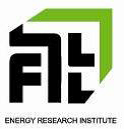NDRC-ERI
 Energy Research Institute (ERI) is a national research organization conducting comprehensive studies on China’s energy issues, including energy economics, energy industry, energy technology policy, supply and demand forecasting, energy security, energy and environment, energy conservation and energy efficiency, renewable energy and alternative energy etc. ERI has total 78 researchers; with 44 are senior researchers/professors.
Energy Research Institute (ERI) is a national research organization conducting comprehensive studies on China’s energy issues, including energy economics, energy industry, energy technology policy, supply and demand forecasting, energy security, energy and environment, energy conservation and energy efficiency, renewable energy and alternative energy etc. ERI has total 78 researchers; with 44 are senior researchers/professors.
ERI researchers offers the policy and technical advisories energy development strategies, planning, policy, law and standards for the Chinese government, and public and private sector clients, and has led international cooperative study and academic exchange in energy areas with relevant international agencies, foreign governments, organizations and academics, such as International Energy Agency (IEA), UNDP, World Bank, Asian Development Bank, GEF, Energy Foundation, Shell Foundation etc.
In recent years, ERI leads several key national studies on energy efficiency, GHG mitigation and low carbon development. Such as the national GHG inventory and China’s first and second national communication, China’s 2050 sustainable energy and low carbon scenario roadmap, China’s regional/city low carbon planning, national renewable energy development roadmaps, China’s climate change action plan and measurements, Asia-Pacific climate change impact assessment, China’s energy and carbon emission scenario analysis, China GHG mitigation technology assessment, electricity demand side response analysis and demand side management, financial and fiscal measures for incentivize China’s energy conservation, etc.
ERI developed proprietary modeling such as Integrated Policy Assessment model for China (IPAC) model which includes bottom-up GHG mitigation technology assessment model, Computable General Equilibrium Model, China multi-regional mid-long term energy supply and demand forecasting model (ANSWER-TIMES), etc. Specific on China’s carbon market, ERI researchers lead the energy industry GHG emission inventory and emission factors, develop the China’s GHG database, marginal abetment cost in power sectors, examine the ETS impacts to specific sectors (e.g. power, iron & steel, cement, etc), policy options for designing the ETS for power sectors in China, sectoral approach on the feasibility of power sector joining international carbon market, MRV regime study in China, design China’s national ETS regime, etc.
ERI has good policy research basis and model tool for energy and food security, mitigation and adaptation of climate change research both in China and globally.
